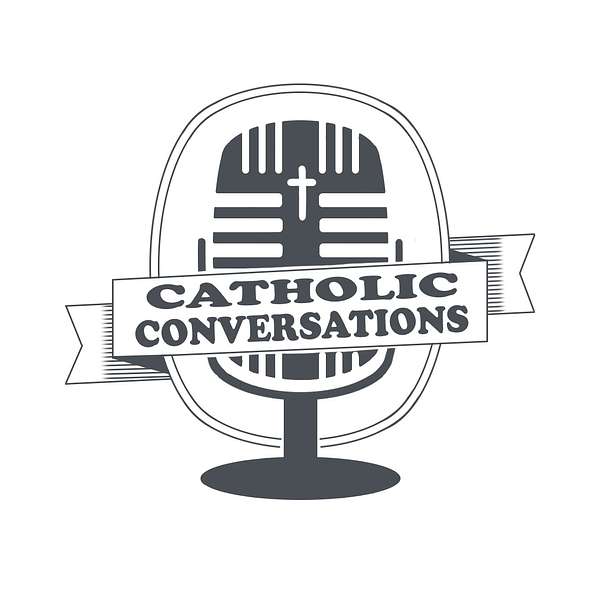
Catholic Conversations
Join Adrian Fonseca on a journey to deepen your understanding of the Catholic Faith through thoughtful discussions and insightful conversations. As a devout Catholic, Adrian is passionate about sharing the richness of Catholic teachings and traditions with his audience. From exploring the history and significance of sacramentals like the Miraculous Medal and the Green Scapular, to tackling profound theological questions about suffering and salvation, each episode delves into a different aspect of Catholicism. Whether you're a lifelong Catholic or simply curious about the faith, you'll find engaging discussions on topics ranging from liturgy and theology to philosophy and devotions. Tune in to Catholic Conversations and let Adrian guide you on a spiritual exploration that will enrich your faith and deepen your relationship with God.
Catholic Conversations
Introduction to Classical Protestant Theology
Use Left/Right to seek, Home/End to jump to start or end. Hold shift to jump forward or backward.
On Classical Reformed Theology with Christian Wagner (Scholastic Answers)
Outline of the show
Two brief notes on the topic
1. Don't be jerks
2. Be careful
1. The Reformers
1. First Generation
2. Second Generation
3. Polemical Context
1. Formed an early iteration of scholasticism that was chiefly polemical (although, its full flowering doesn't come until the 1580's in replying to Bellarmine)
4. Pre-Tridentine
2. Early Orthodoxy (1565-1620)
1. Needed to build structure
2. Thus
1. First, needed confessions
1. Protestant Magisterium
2. Second, needed didactic theology
3. These are the guys that Bellarmine and Suarez were responding to
3. High Orthodoxy (1620-1700)
1. "during the period of early orthodoxy (ca. 1560– 1620), theology was developed and worked out primarily from the basis of the Reformed confessions. The period of high orthodoxy (ca. 1620–1700), however, saw comprehensive dogmatic works in which the results of exegesis, dogmatic formulations, polemical elements, and expositions of the practical implications of doctrine were combined into an imposing whole. The scholasticism of high orthodoxy was thus characterized by increasing precision in its theological apparatus. This allowed dogmatic material
to be worked out further and caused the number of polemical topics to increase. High orthodoxy was not a time for developing new systems but rather for building up what had been inherited from the theology of early orthodoxy"
2. Catholic Resourcement
1. Hermeneutic of Reformed Catholicity
3. Synod of Dort
4. Westminster Assembly
5. Puritans vs. Anglicans
4. Late Orthodoxy (1700-1790)
1. Dissolution of Reformed Theology
5. Resourcement movements
1. Mercersburg theology
1. Schaff's Development of Doctrine
2. Richard Muller
Critique
1. Puritans vs. Anglicans
2. Catholic Resourcement
3. Magisterial to Confessional
Adrian Social Media
IG: @ffonze
Twitter: @AdrianFonze
Facebook: Adrian Fonseca
YouTube: Adrian Fonseca
YouTube: Catholic Conversations
Enjoy the content, wanna support? https://www.buymeacoffee.com/adrianfonseca
Adrian Social Media
IG: @ffonze
Twitter: @AdrianFonze
Facebook: Adrian Fonseca
YouTube: Adrian Fonseca
YouTube: Catholic Conversations